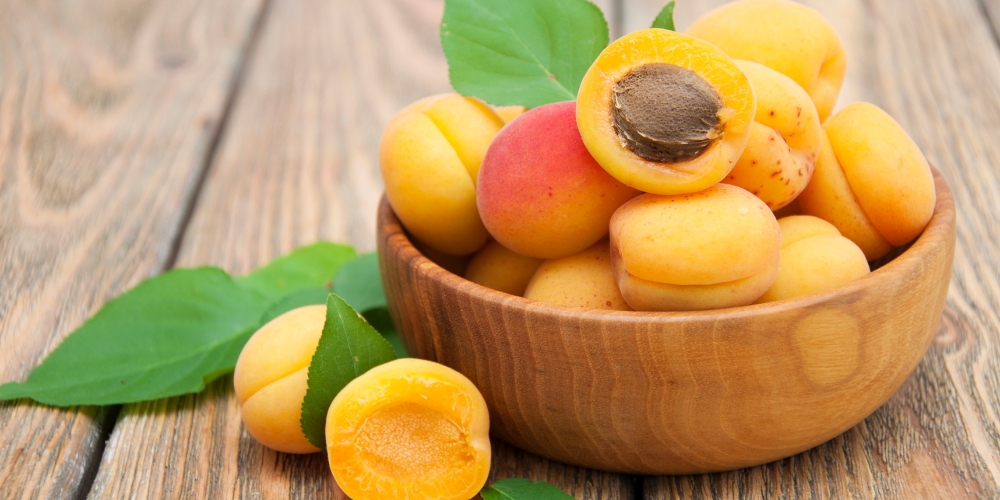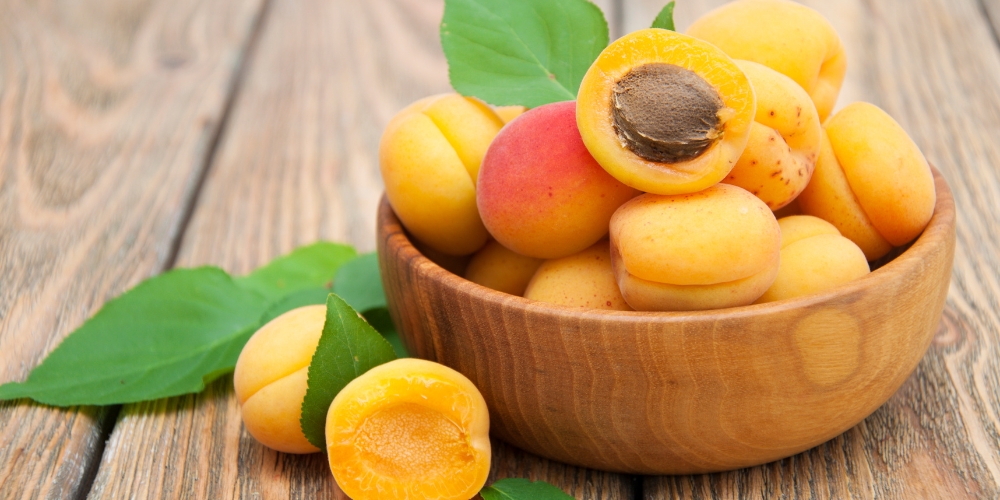Apricots: Nutrient-Rich Fruits with Impressive Health Benefits
Often referred to as Armenian plums, apricots are not only tasty but also packed with a variety of health benefits that support both internal and external wellness.
These golden-orange fruits, which resemble small peaches and have a flavor similar to plums, are loaded with nutrients that promote overall health.
Nutrient-Dense and Low in Calories

Apricots offer a wealth of essential vitamins and minerals while being low in calories. Just two fresh apricots (about 70 grams) contain only 34 calories but provide significant amounts of vitamins A, C, and E, along with potassium and fiber.
They also contain helpful plant-based compounds such as beta carotene, lutein, and zeaxanthin, which contribute to general health.
Rich in Antioxidants
Apricots are a great source of antioxidants, including flavonoids like catechins, quercetin, and chlorogenic acid.
These antioxidants help combat oxidative stress in the body, which is associated with chronic conditions such as heart disease, obesity, and diabetes.
Research has linked higher flavonoid intake with lower inflammation and better cellular function.
Supports Vision Health

Apricots are loaded with vision-supporting nutrients like vitamins A and E, as well as beta carotene, lutein, and zeaxanthin.
Vitamin A helps prevent night blindness, while vitamin E shields the eyes from oxidative harm.
Lutein and zeaxanthin are crucial for protecting the retina and may reduce the risk of age-related vision issues.
Promotes Skin Wellness
The antioxidants in apricots can help protect the skin from environmental aggressors like sun exposure, pollution, and cigarette smoke.
Vitamin C is particularly important for collagen synthesis, which maintains skin elasticity and reduces the appearance of wrinkles. Beta carotene also contributes by helping guard against sunburn. Regularly eating apricots may lead to healthier, more resilient skin.
Boosts Digestive Function
Apricots are rich in dietary fiber, especially soluble fiber, which aids digestion and helps regulate blood sugar and cholesterol.
One cup of sliced apricots provides over 3 grams of fiber, which supports regular bowel movements and nourishes healthy gut bacteria.
A balanced gut microbiome is linked to better digestion and a lower risk of metabolic disorders.
Excellent Source of Potassium

Potassium is vital for maintaining fluid balance, supporting muscle contractions, and regulating blood pressure.
Two apricots contain around 181 mg of potassium. Including potassium-rich foods like apricots in your diet can help lower the risk of high blood pressure and stroke.
They’re a natural, low-sodium way to maintain proper electrolyte levels.
Helps Maintain Hydration
Apricots have a high water content, which aids in hydration and supports key functions such as circulation, temperature control, and joint lubrication.
A cup of sliced apricots contains about two-thirds of a cup of water. Their combination of water and potassium makes them an excellent option for rehydrating after exercise or in hot weather.
May Support Liver Health
Emerging research suggests that apricots’ antioxidant content may protect the liver from oxidative stress, particularly related to alcohol consumption.
Animal studies have shown that rats given apricots had lower liver inflammation and enzyme levels compared to those that weren’t. While more human studies are needed, early results are encouraging.
Simple to Add to Your Diet
Apricots are easy to enjoy, whether fresh or dried. They can be eaten as a snack, added to yogurt or salads, mixed into trail mix, or used in both savory and sweet dishes.
Their sweet-yet-tangy flavor makes them a perfect alternative to peaches or plums in many recipes.








